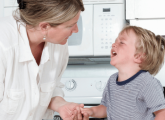World Kindness Day, celebrated on 13 November, is the perfect opportunity to enjoy creative activities while introducing conversations about kindness.
When it comes to kindness, a small act can have a huge impact, whether that’s helping other people, your local community, a charity, or the environment.
Here’s 8 ways to help early years children consider what it means to be kind to ourselves and others:
When it’s time to pack away toys and resources, children love a tidy-up game.
See if they can put away only the toys they haven’t played with. A fun way to help their friends out.
Can the children remember a kind act that someone has done for them, and how it made them feel?
Use your conversations to create a memory box or a gratitude tree. Don’t forget to share your memories of when the children have been kind to you, too!
Take a walk out to explore nature and talk about the different ways we can be kind to wildlife. Try building a minibeast hotel with natural resources, or if you have a garden, use old plastic milk bottles to create some colourful birdfeeders.
Download World Kindness Day EYFS activities and worksheets. The Celebrating Kindness resource pack supports children to identify acts of kindness and award medals or badges to their friends when they spot acts of kindness.
In 2007, psychologist Carol Dweck developed the theory of growth mindset – the theory that our intelligence, skills and abilities aren’t fixed, but can grow.
One way to start children on their journey to a growth mindset is to pay attention to the language we all use. If you hear a child saying, “I can’t do this!”, encourage them to add “yet”. A small word can make a big difference.
It’s important for children (and adults) to know it’s okay to get things wrong. Some children might think of getting a question wrong; some might feel embarrassed if they misunderstand an instruction.
Help them to understand that we all get things wrong – it’s how we learn and what makes us human. Tell the children about mistakes you made recently, and how they helped you learn.
Encourage children to think of some positive affirmations about themselves – a great way to boost confidence and introduce new vocabulary.
You might create a bank of affirmation cards to choose from, with words such as ‘kind’, ‘brave’, ‘thoughtful’, ‘strong’, ‘generous’. Together, make a poster of all the chosen affirmations for your setting.
What are the children’s proudest moments? When talking about these, try to focus on things that children can control and the choices they make, such as kindness, thoughtfulness, effort and perseverance. Create a ‘proud cloud’ of pictures and words that show their proud moments.

Teaching about consent – How to do it in Early Years
Editors picks

Modelled behaviour – How to set the best example
Editors picks
